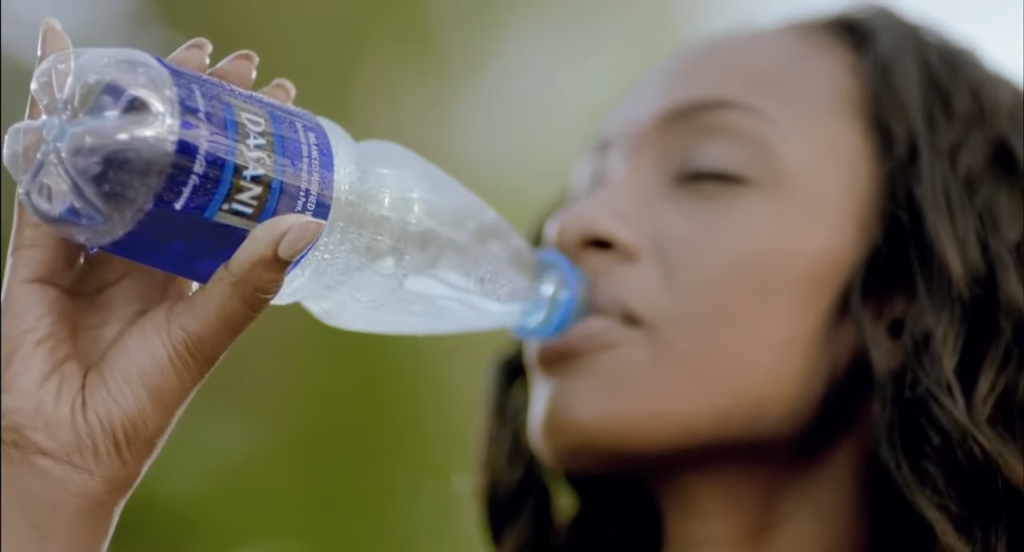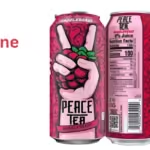Understanding Bottled Water: A Closer Look at Dasani
Dasani, a widely recognized bottled water brand, has encountered significant scrutiny. Numerous reports have raised questions about its quality, suggesting it might merely be bottled tap water. This has led consumers to ponder if it represents a poor investment or poses health risks. Is Dasani Water Bad For You?
So, what’s the truth about Dasani water? Are there any ingredients in it that could be deemed unhealthy? Let’s delve into how Dasani is produced and assess whether it stands as a healthier option compared to tap water. Additionally, we’ll explore the taste profile of Dasani water and identify the healthiest choice of filtered water.

Through this discussion, we aim to provide insights based on medical studies regarding the components of Dasani water and evaluate its health implications.
Moreover, we’ll consider the potential health impacts of its plastic packaging and discuss the safety concerns associated with tap water in various regions of the United States. To conclude, we’ll guide you through the most effective methods for water filtration to ensure the elimination of contaminants.
Evaluating Dasani Water: Health Implications
Is Dasani Water Bad for You? This question has sparked considerable debate, yet the answer is nuanced. Dasani water undergoes reverse osmosis purification and is enriched with minerals such as magnesium sulfate, potassium chloride, and salt to enhance its flavor.
Generally, this process makes Dasani a safe choice for the majority of individuals. Its composition, characterized by a low mineral content, is conducive to hydration. However, this aspect might raise concerns for those dealing with specific health conditions.
Concerning packaging, Dasani’s plastic bottles are crafted to be BPA-free, reducing the risks associated with this chemical. While bottled water offers convenience, it’s crucial to acknowledge the environmental toll, including the production of plastic waste and the extraction of resources.
In summary, for the average consumer, Dasani water is considered safe and effective for hydration purposes. Yet, it’s essential to weigh the environmental implications and consider personal health conditions when choosing bottled water.
Understanding Dasani Water: Health Aspects and Mineral Content
When exploring the question, Is Dasani Water Bad for You?, it’s crucial to look at how Dasani purifies its water and the specific minerals added back for taste and health benefits. Dasani uses reverse osmosis, a process that filters water by pushing it through a specialized membrane, removing various impurities and contaminants.
While effective for purification, this method also removes naturally occurring minerals, leading Dasani to add a selection of minerals for both taste improvement and nutritional value.
Here is a simplified overview of the minerals added to Dasani water, their purposes, and their potential impacts on health, presented in a user-friendly table:
| Mineral | Purpose | Potential Impact on Health |
|---|---|---|
| Magnesium sulfate | Enhances taste | Provides magnesium, crucial for many body functions |
| Potassium chloride | Enhances taste | Supports potassium intake, vital for heart and muscle health |
| Salt (sodium chloride) | Enhances taste | May need monitoring by individuals with conditions sensitive to sodium |
- Magnesium sulfate not only improves the taste but also contributes essential magnesium, necessary for various biological processes.
- Potassium chloride is added for taste and aids in maintaining necessary potassium levels, which are important for heart function and muscle contraction.
- Salt (sodium chloride), while enhancing flavor, might be a consideration for those with health conditions that require them to monitor sodium intake closely.
Despite the addition of these minerals primarily for taste, they do serve important functions in hydration and supporting physiological processes. For the majority of people, the mineral content in Dasani water poses no health risk and may even be beneficial, particularly in terms of hydration and maintaining a balanced intake of minerals.
If there are any concerns regarding the effects of the purification process on natural mineral content or the specific minerals added to Dasani water, consulting with a healthcare provider or a nutrition expert can offer personalized advice.
Additionally, exploring peer-reviewed scientific literature on the consumption of mineral-enriched water can provide insights grounded in the latest health and nutrition research, ensuring decisions are informed by reliable information.
Evaluating Dasani Water: Ingredients and Packaging Concerns
Is Dasani Water Bad for You? To address this inquiry comprehensively, it’s essential to dissect both the components of Dasani water and its packaging materials. Dasani incorporates magnesium sulfate and potassium chloride as electrolytes to enhance taste.
These ingredients are recognized for their safety and non-toxicity. The addition of these electrolytes combats the “flat” taste that filtered water can sometimes exhibit, ensuring a more palatable hydration option.

The focal point of health-related discussions concerning Dasani water leans more towards its plastic packaging than its actual contents. Dasani utilizes soft plastic containers, which necessitate plasticizers (with BPA being the most notorious) to achieve their flexibility.
The research highlighted in Toxicology Reports indicates a correlation between BPA ingestion and an elevated risk of cancer.
Moreover, even BPA-free alternatives may not offer a safer solution. Studies, including one in the Environmental Health journal, reveal that estrogenic compounds can leach from BPA-free packaging, posing similar health risks.
Comparative analyses, like those conducted on blk Water, demonstrate a higher incidence of microplastic contamination in single-use bottled waters, including Dasani, compared to tap water. This evidence suggests that while the ingredients in Dasani water might not be harmful, the environmental and potential health impacts of its packaging warrant consideration.
Next, we’ll explore whether tap water presents a more viable alternative, weighing its benefits against the potential drawbacks of bottled options like Dasani.
Analyzing Dasani Water: The Significance of pH Levels
Is Dasani Water Bad for You? In addressing this question, it’s pivotal to examine the concerns surrounding the pH level of Dasani water. The pH scale measures water’s acidity, with lower values indicating greater acidity and higher values reflecting alkalinity.
While the internet harbors much-unfounded advice and misinformation regarding Dasani’s relatively low pH, it’s essential to rely on scientific evidence. Although benefits are associated with alkaline water, there’s a lack of compelling medical proof suggesting that water with a more acidic pH, within a standard range, poses health risks.
The primary indicators of water’s healthfulness hinge on its contaminant levels and the type of packaging used. In our perspective, water with minimal to no heavy metal contamination and non-plastic packaging is deemed healthy. Consequently, the pH factor holds lesser importance in this context.
While Dasani’s lower pH may influence taste perceptions — a sentiment echoed by numerous online reviews — this characteristic does not inherently implicate health concerns.
Notably, Dasani transparently shares updated test results annually, affirming the absence of detrimental contaminants in its water.
Given that low contamination levels and plastic-free packaging emerge as crucial criteria for defining healthy water, the subsequent discussion will introduce the optimal filtration options. Our analysis will culminate with a personalized overview of Dasani water.
Understanding the Side Effects of Dasani Water: A Concise Overview
When it comes to discussing the potential side effects of consuming Dasani water, it’s crucial to approach the subject with a clear understanding of what those effects might entail. Dasani, as a brand of bottled water produced by the Coca-Cola Company, primarily offers purified water with added minerals for taste enhancement. While generally considered safe for consumption, there are a few points of concern that consumers might want to be aware of:
- Chemical Leaching from Bottles: Exposure to heat can increase the risk of chemicals leaching from PET plastic bottles into the water, though Dasani bottles are designed to be safe under normal conditions.
- Mineral Content Sensitivities: The minerals added for taste (like magnesium sulfate and potassium chloride) could potentially cause mild gastrointestinal discomfort in individuals with specific sensitivities.
- Environmental Concerns: The production and disposal of plastic bottles have significant environmental impacts, including resource depletion and pollution, which indirectly affect human health through environmental degradation.
- Misinformation and Psychological Effects: Myths and misinformation can lead to unwarranted health concerns, highlighting the importance of relying on scientifically backed information when evaluating the safety of bottled water products.
Dasani water, like any bottled water, is subject to stringent safety and quality controls. The potential side effects mentioned are generally minor and more related to the packaging and added minerals rather than the water itself. Always ensure proper storage and usage to minimize any risks, and consider the environmental impact of bottled water consumption.
Personal Experience with Dasani Water
Is Dasani Water Bad for You? In pursuit of an informed perspective, I personally sampled Dasani Water. My usual preference is to lean away from single-use plastic bottles due to their health and ecological implications. However, for the sake of this evaluation, I purchased a bottle of Dasani Water during a work-related trip from a gas station.
The flavor of Dasani Water struck me as unremarkable yet acceptable; it bore a resemblance to distilled water, lacking any distinctive mineral or complex flavors that some other bottled waters possess.

From an aesthetic standpoint, the Dasani bottle design did not appeal to me. Compared to other brands such as JUST Water or Liquid Death, I found Dasani’s bottle shape and size less convenient and visually pleasing.
Given the combined factors of environmental impact, cost, and my subjective taste experience, I do not foresee myself opting for Dasani Water in the future, regardless of travel circumstances.
Final Thoughts on Dasani Water
Is Dasani Water Bad for You? After careful consideration, we conclude that Dasani water itself is not inherently harmful. However, we advise caution regarding its plastic packaging. Studies have indicated that plastic containers can release hormone-disrupting chemicals into the water, posing risks to both environmental well-being and potentially human health.
On a positive note, Dasani water is commendably low in contaminants, which aligns with health and safety standards. Additionally, the skepticism surrounding its low pH level lacks a substantial scientific basis, and thus should not be a primary concern.
Considering the prevalence of contaminants in many local water supplies across the U.S., we believe that home water filtration represents the most cost-effective and health-conscious approach to ensuring the consumption of clean and pure water.
In sum, while Dasani water may not pose significant health risks, the environmental impact of its packaging and the availability of healthier, more sustainable alternatives lead us to suggest exploring other options for hydration.
FAQs: Is Dasani Water Bad For You?
Q: Is Dasani Water Safe to Drink?
Dasani water is treated using disinfection, reverse osmosis, and nanofiltration methods to eliminate impurities, ensuring its safety. Furthermore, it is slightly enriched with mineral salts to improve taste.
Q: What is the controversy with Dasani water?
The issue with Dasani water centered around its containing 10mg per liter of Bromate, a concentration not permitted due to its potential cancer risk. This discovery led to an immediate recall of 500,000 bottles, significantly impacting Dasani’s market launch.
Q: Why is Dasani water considered good?
Dasani water’s addition of minerals provides a distinctive, pleasant taste compared to ordinary tap water, making it a preferable alternative to sugary beverages and sodas. Its packaging also contributes to its convenience for users.
Q: Why is Dasani banned in the UK?
Dasani faced a ban in the UK after authorities detected bromate—a compound potentially harmful and considered carcinogenic—in amounts exceeding the legal limits within a batch on 18 March 2004. Despite the Food Standards Agency (FSA) stating there was no direct threat to public health, the high bromate levels led to the ban due to safety regulations.
Q: Is Dasani good or bad?
Evaluating Dasani water, it contains some contaminants that might be considered unhealthy; however, it has not been deemed hazardous since the 2004 incident. The presence of plastic microparticles in Dasani is similar to that found in both regular bottled and tap water, indicating no significant deviation in terms of safety and health standards.
Q: Why is Dasani water bad for your stomach and kidneys?
Concerns about Dasani water affecting the stomach and kidneys primarily stem from its added minerals and the presence of substances like bromate in past incidents. High levels of certain minerals might disrupt some individuals’ digestive systems, while contaminants like bromate, if present above safe limits, could potentially harm kidney function. However, regular monitoring and quality controls aim to mitigate these risks.
Q: Is Dasani water acidic?
Yes, Dasani water is considered to be on the acidic side of the pH scale. Among various bottled water brands, Dasani is noted for its lower pH level, making it more acidic compared to many other options available. Produced by the Coca-Cola Company, Dasani is a widely recognized bottled water brand found in numerous dining establishments and retail stores.
Q: Is Dasani Water Suitable for Plants?
No, Dasani water isn’t the best for plants. Pure Spring Water is recommended for healthier plant growth, as it naturally contains beneficial minerals that Dasani, a purified water, lacks.
Q: How much salt is Dasani water?
Dasani water contains a small amount of added minerals for taste, including magnesium sulfate, potassium chloride, and salt (sodium chloride). The exact amount of salt in Dasani water is not typically specified on the bottle, but it’s generally a minimal amount, designed to enhance flavor rather than to provide any significant nutritional value. The overall mineral content is meant to mimic the taste of natural spring water and is within safe consumption limits.





